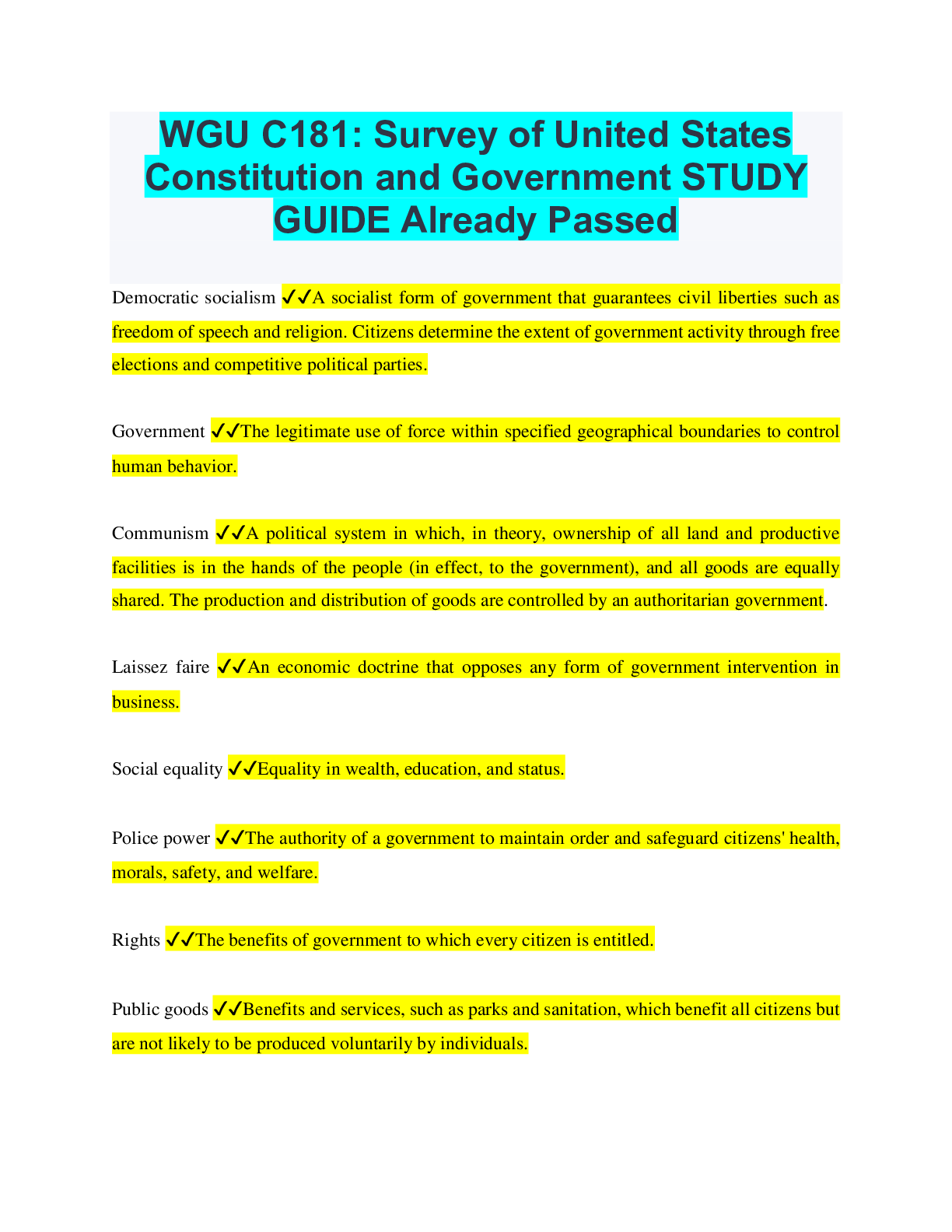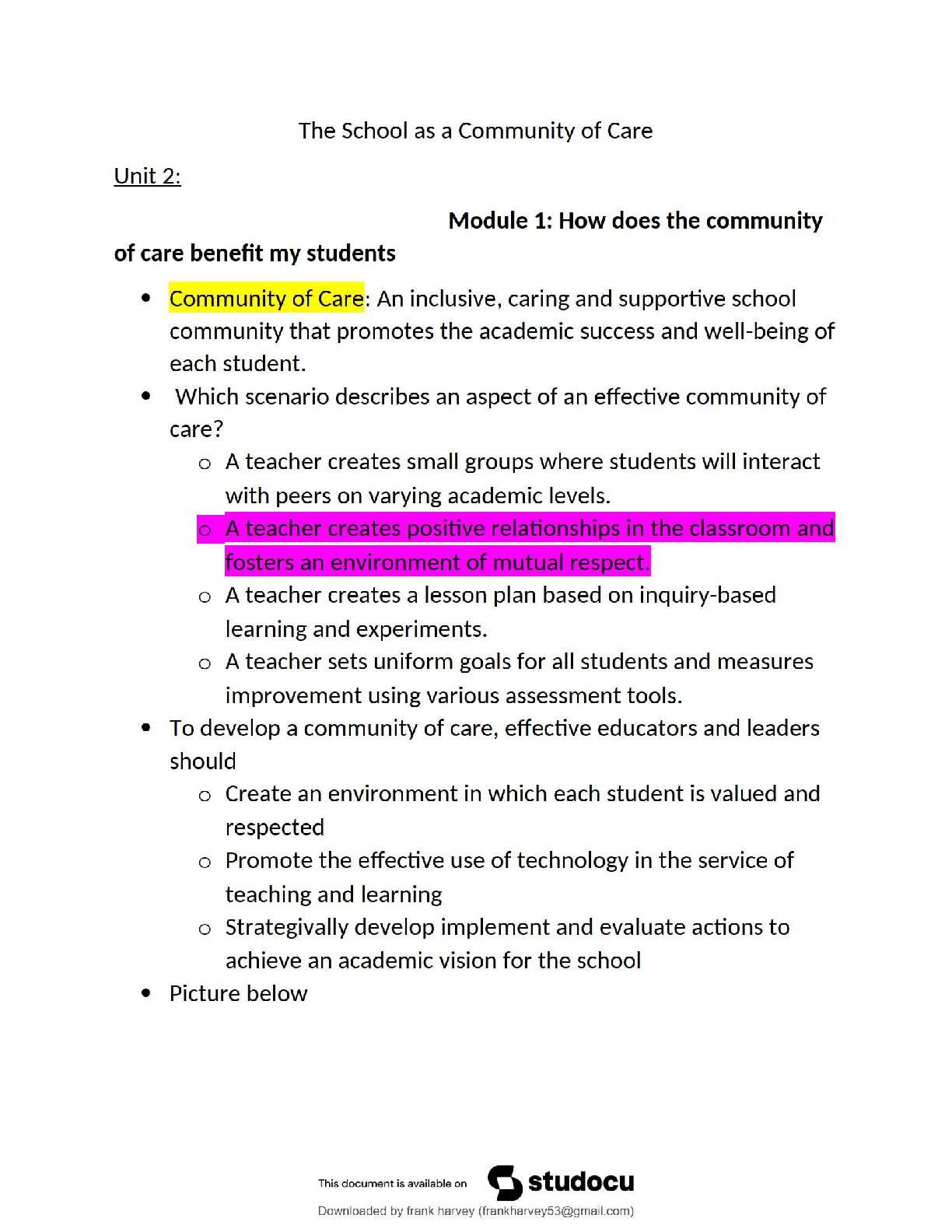Political Science > QUESTIONS & ANSWERS > WGU C181: Survey of United States Constitution and Government STUDY GUIDE Already Passed (All)
WGU C181: Survey of United States Constitution and Government STUDY GUIDE Already Passed
Document Content and Description Below
WGU C181: Survey of United States Constitution and Government STUDY GUIDE Already Passed Democratic socialism ✔✔A socialist form of government that guarantees civil liberties such as freedom o... f speech and religion. Citizens determine the extent of government activity through free elections and competitive political parties. Government ✔✔The legitimate use of force within specified geographical boundaries to control human behavior. Communism ✔✔A political system in which, in theory, ownership of all land and productive facilities is in the hands of the people (in effect, to the government), and all goods are equally shared. The production and distribution of goods are controlled by an authoritarian government. Laissez faire ✔✔An economic doctrine that opposes any form of government intervention in business. Social equality ✔✔Equality in wealth, education, and status. Police power ✔✔The authority of a government to maintain order and safeguard citizens' health, morals, safety, and welfare. Rights ✔✔The benefits of government to which every citizen is entitled. Public goods ✔✔Benefits and services, such as parks and sanitation, which benefit all citizens but are not likely to be produced voluntarily by individuals. Socialism ✔✔A form of rule in which the central government plays a strong role in regulating existing private industry and directing the economy, although it does allow some private ownership of productive capacity. Freedom ✔✔The power or right to act, speak, or think as one wants without hindrance or restraint. Capitalism ✔✔The system of government that favors free enterprise (privately owned businesses operating without government regulation). Globalization ✔✔The process of interaction and integration among the people, companies, and governments of different nations, a process driven by international trade and investment and aided by information technology. Conservatives ✔✔Those who are willing to use government to promote order but not equality. Order ✔✔The rule of law to preserve life and protect property. Communitarians ✔✔Those who are willing to use government to promote both order and equality. Democracy ✔✔A system of government in which, in theory, the people rule, either directly or indirectly. Responsiveness ✔✔A decision-making principle, necessitated by representative government, which implies that elected representatives should do what the majority of people want. Substantive democratic theory ✔✔The view that democracy is embodied in the substance of government policies rather than in the policymaking procedure. Democratization ✔✔A process of transition as a country attempts to move from an authoritarian form of government to a democratic one. Universal participation ✔✔The concept that everyone in a democracy should participate in governmental decision making. Interest group ✔✔An organized group of individuals that seeks to influence public policy; also called a lobby. Minority rights ✔✔The benefits of government that cannot be denied to any citizen by majority decisions. Autocracy ✔✔A system of government in which the power to govern is concentrated in the hands of one individual. Procedural democratic theory ✔✔A view of democracy as being embodied in a decision-making process that involves universal participation, political equality, majority rule, and responsiveness. Participatory democracy ✔✔A system of government where rank-and-file citizens rule themselves rather than electing representatives to govern on their behalf. E-government ✔✔Online communication channels that enable citizens to easily obtain information from government and facilitate the expression of opinions to government officials. Oligarchy ✔✔A system of government in which power is concentrated in the hands of a few people. Executive branch ✔✔The law-enforcing branch of government Judicial branch ✔✔The law-interpreting branch of government. Judicial review ✔✔The power to declare congressional (and presidential) acts invalid because they violate the Constitution. Electoral college ✔✔A body of electors chosen by voters to cast ballots for president and vice president. Confederation ✔✔A loose association of independent states that agree to cooperate on specified matters. Enumerated powers ✔✔The powers explicitly granted to Congress by the Constitution. Articles of Confederation ✔✔The compact among the thirteen original states that established the first government of the United States. Bill of Rights ✔✔The first ten amendments to the Constitution. They prevent the national government from tampering with fundamental rights and civil liberties, and emphasize the limited character of national power. Supremacy clause ✔✔The clause in Article VI of the Constitution that asserts that national laws take precedence over state and local laws when they conflict. Federalism ✔✔The division of power between a central government and regional governments. Categorical grants ✔✔Grants-in-aid targeted for a specific purpose by either formula or project. Home rule ✔✔The right to enact and enforce legislation locally. Redistricting ✔✔The process of redrawing politic [Show More]
Last updated: 2 years ago
Preview 1 out of 32 pages
.png)
Buy this document to get the full access instantly
Instant Download Access after purchase
Buy NowInstant download
We Accept:

Also available in bundle (1)
.png)
WGU C181 BUNDLED EXAM QUESTIONS AND ANSWERS WITH COMPLETE SOLUTIONS
WGU C181 BUNDLED EXAM QUESTIONS AND ANSWERS WITH COMPLETE SOLUTIONS
By Nutmegs 2 years ago
$15
6
Reviews( 0 )
$10.00
Can't find what you want? Try our AI powered Search
Document information
Connected school, study & course
About the document
Uploaded On
Sep 11, 2022
Number of pages
32
Written in
Additional information
This document has been written for:
Uploaded
Sep 11, 2022
Downloads
0
Views
129

.png)

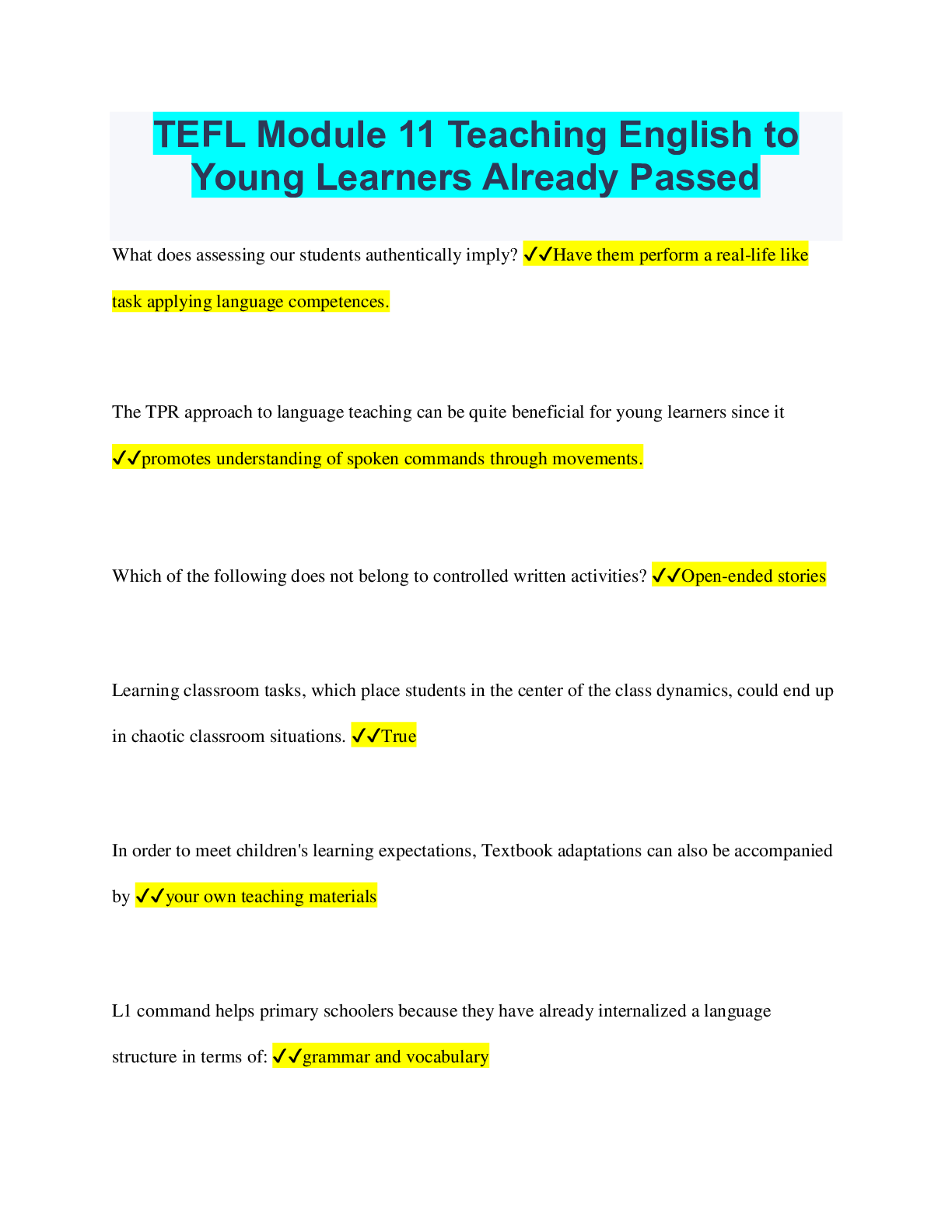
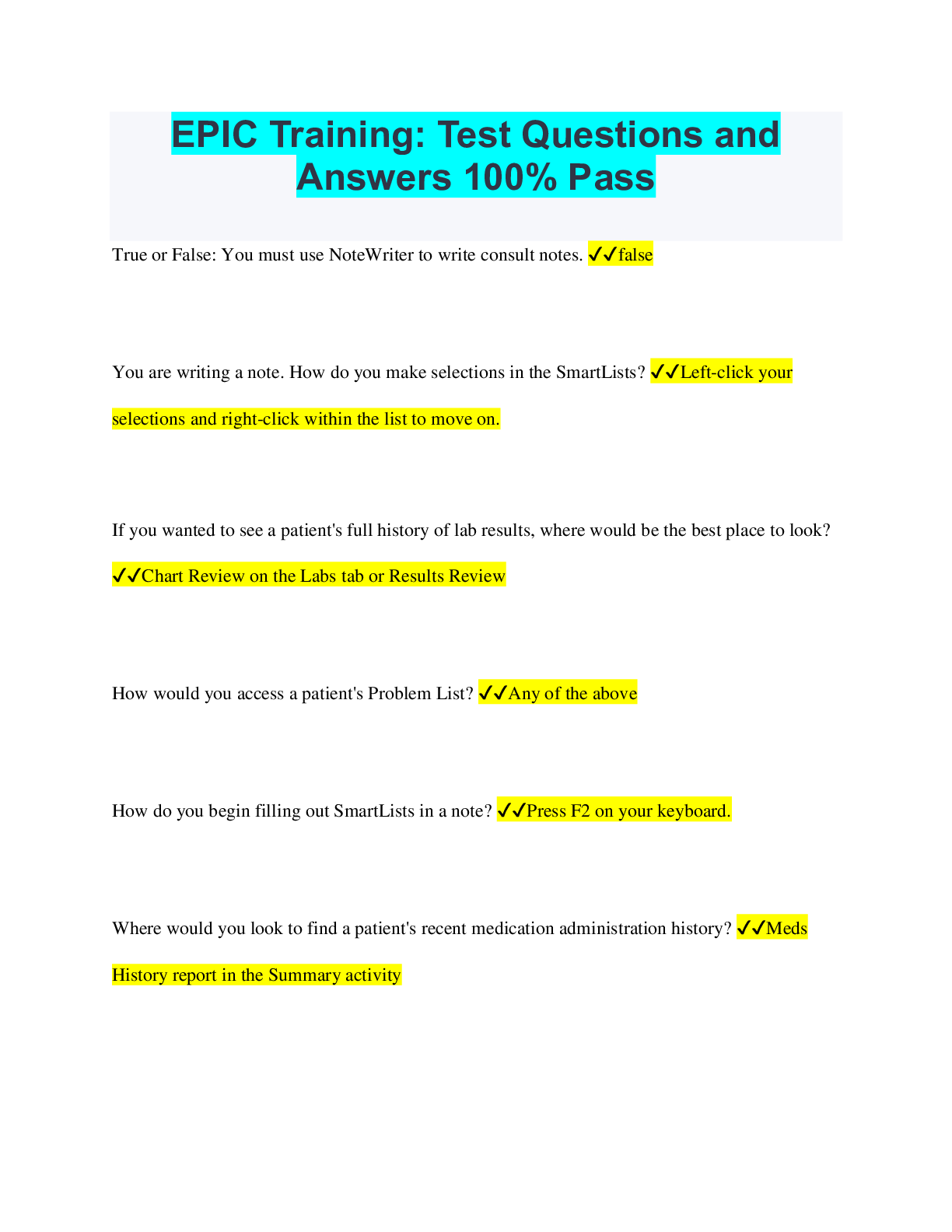
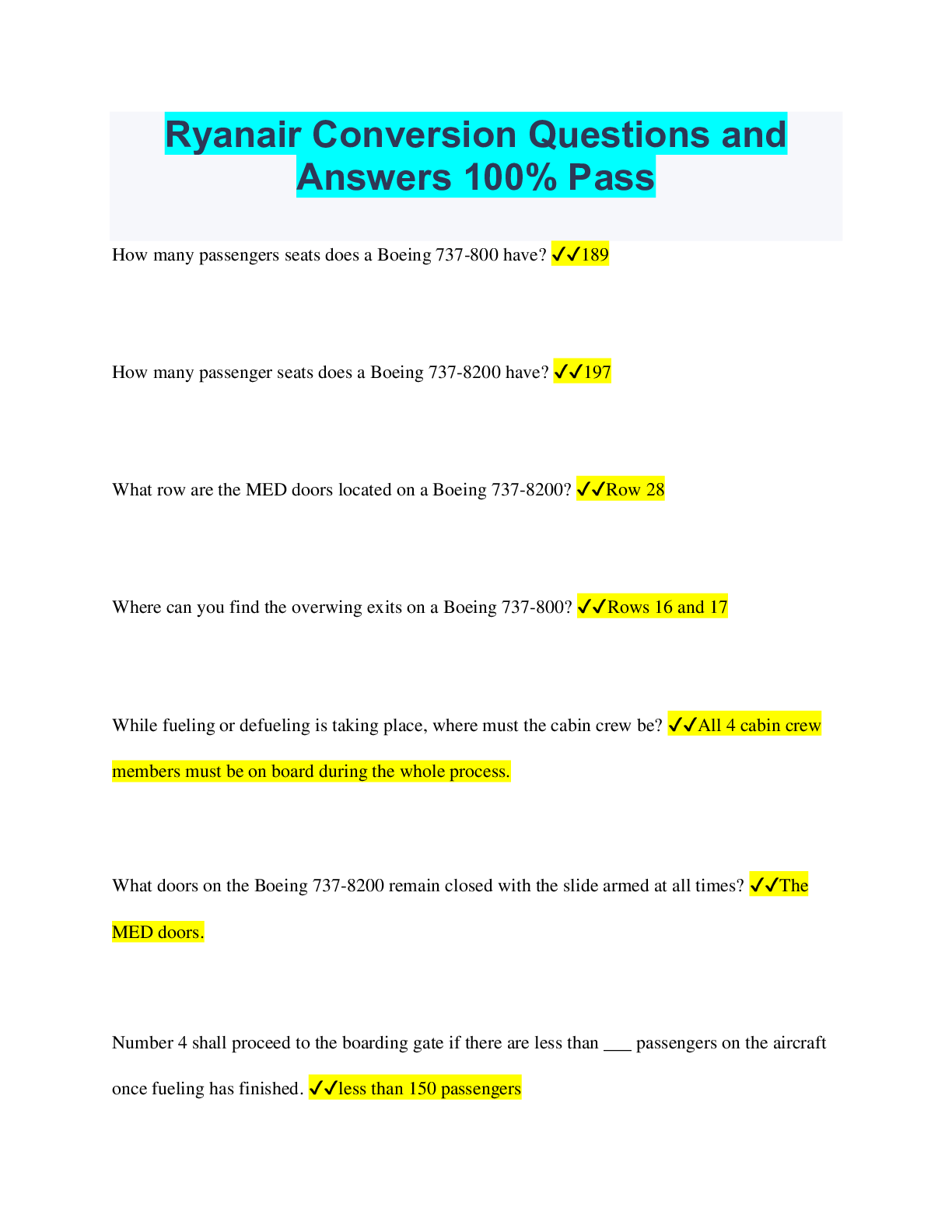
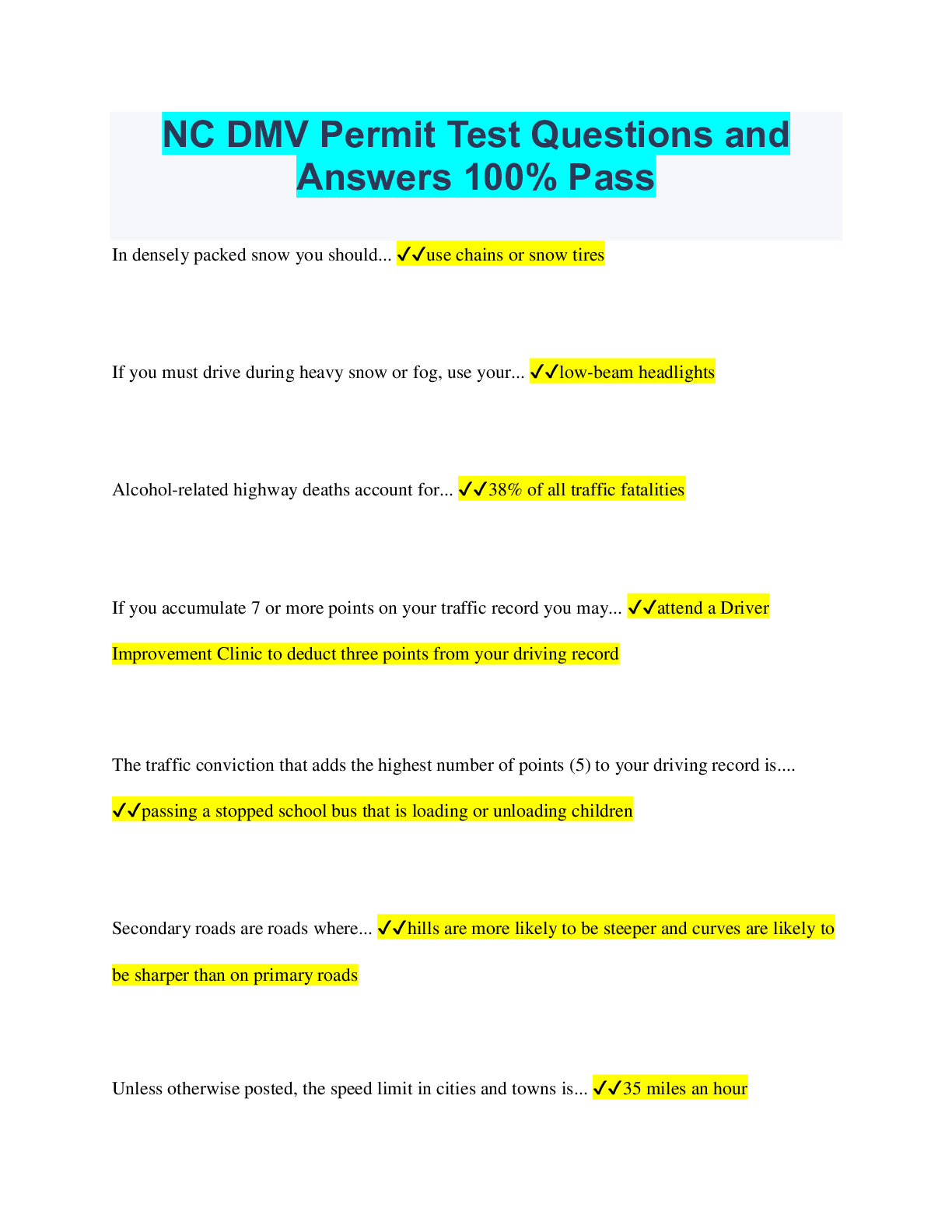
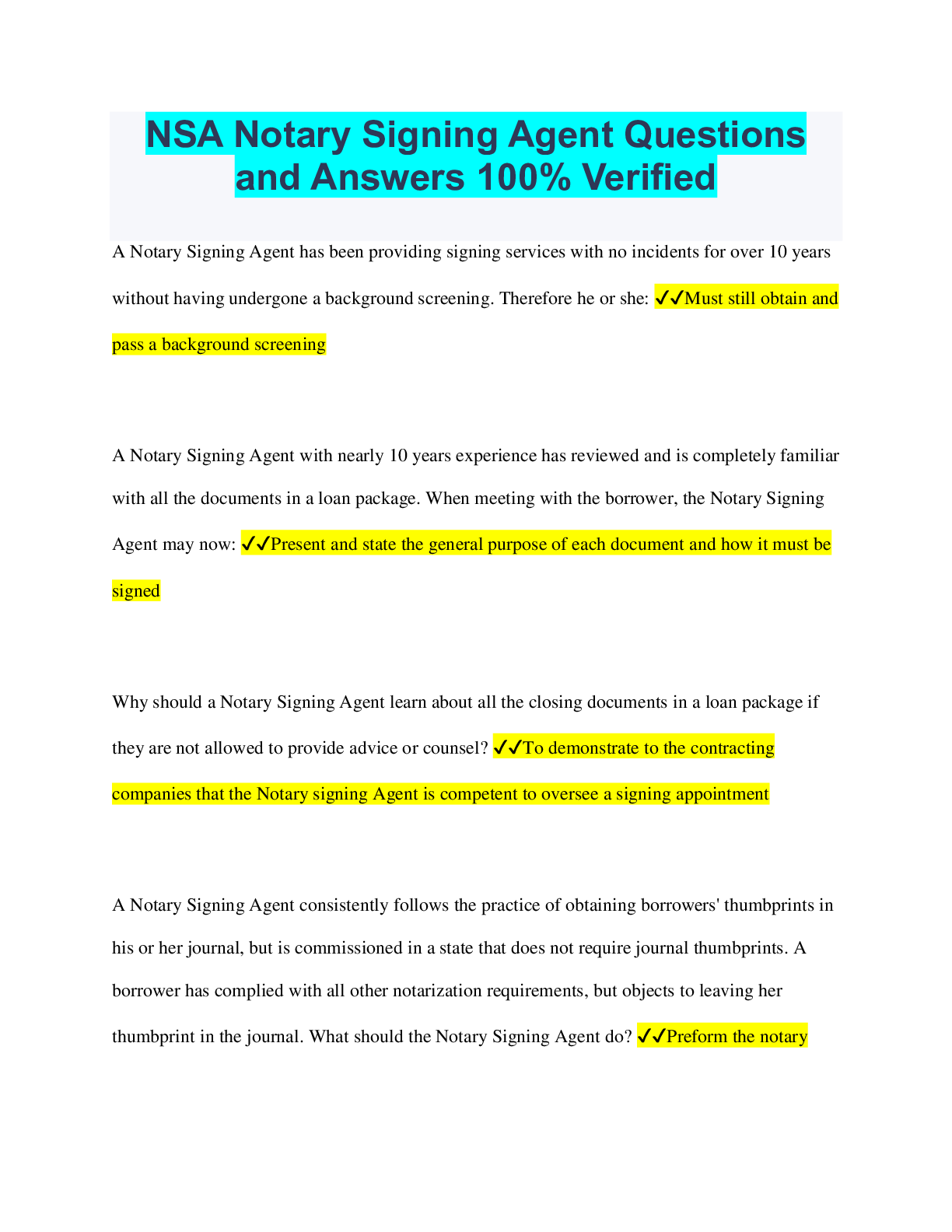
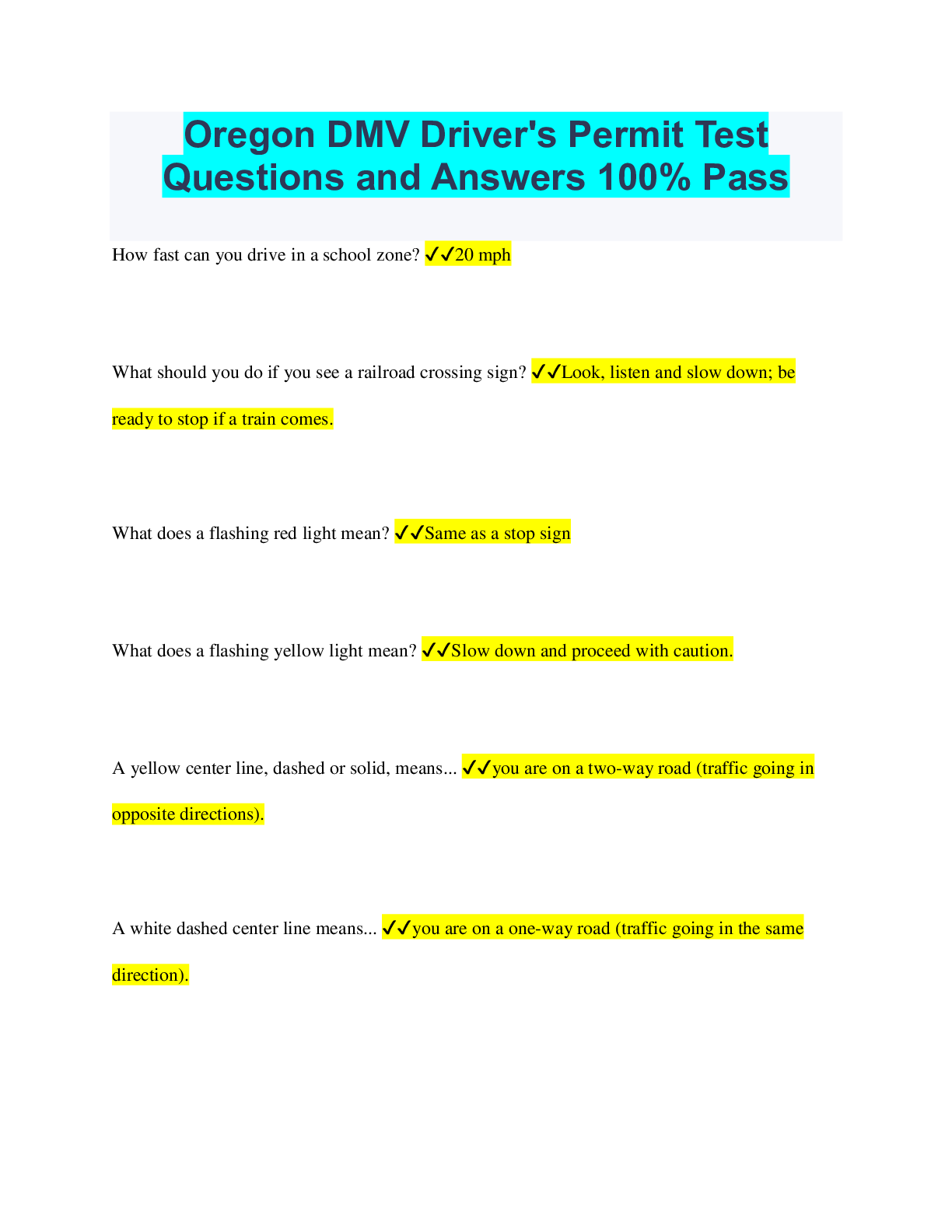
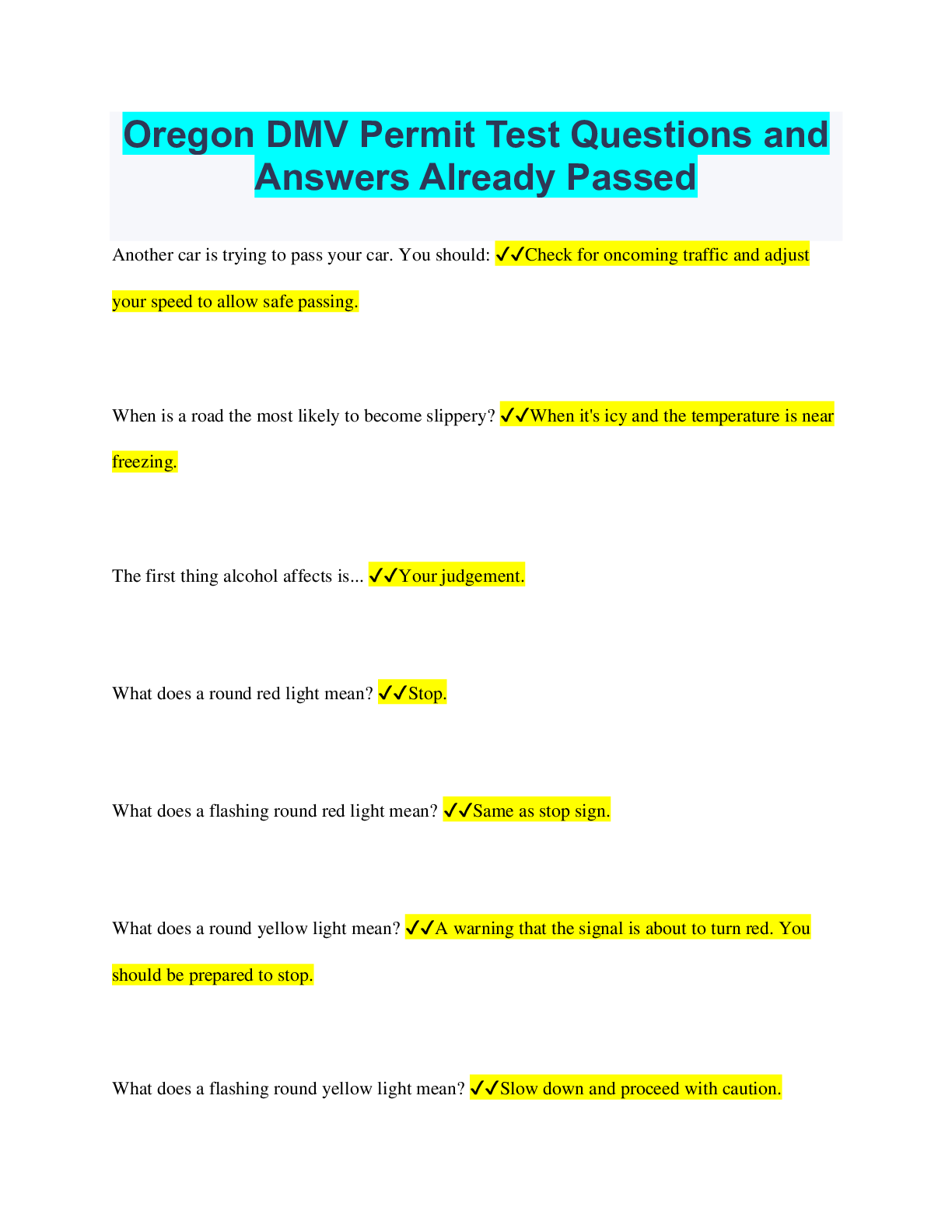
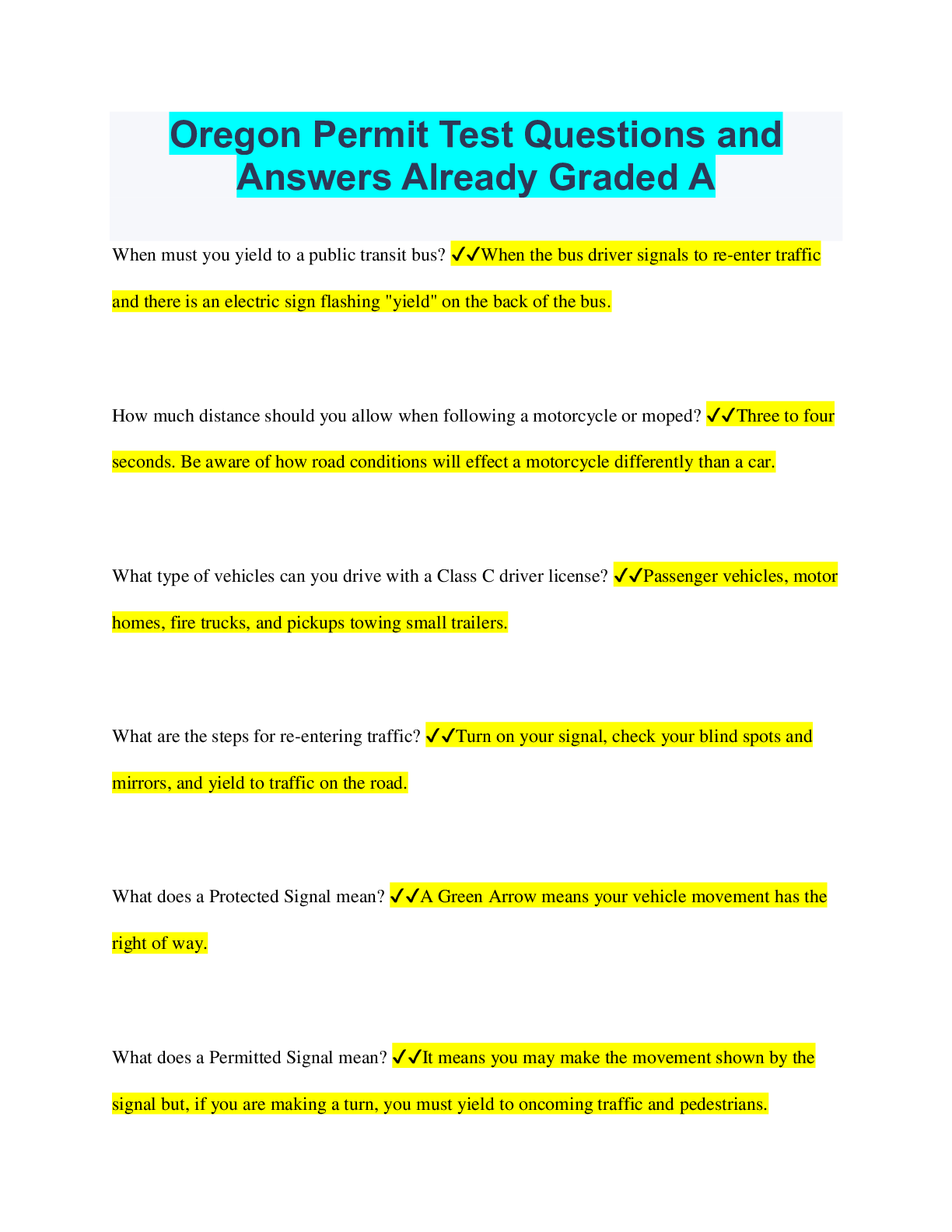
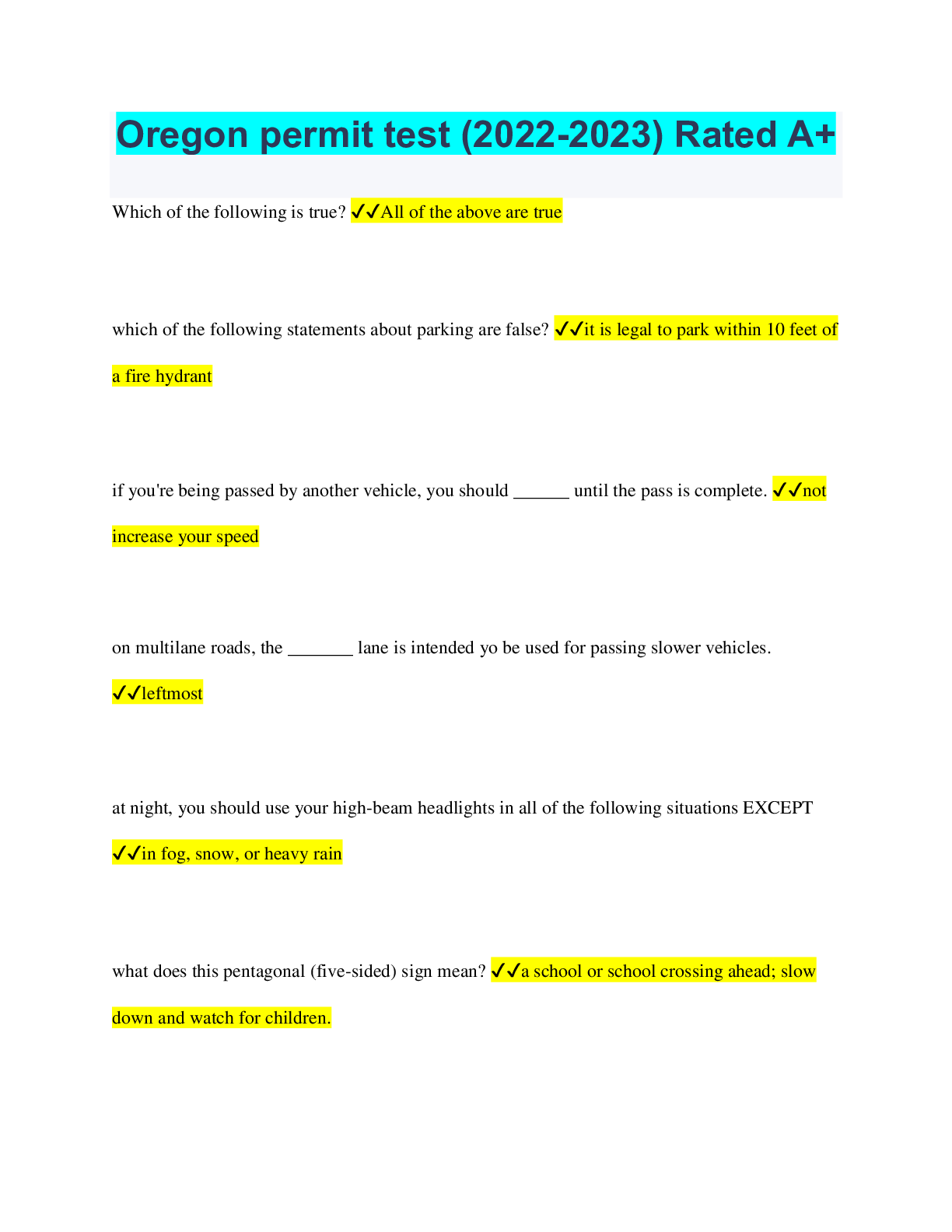
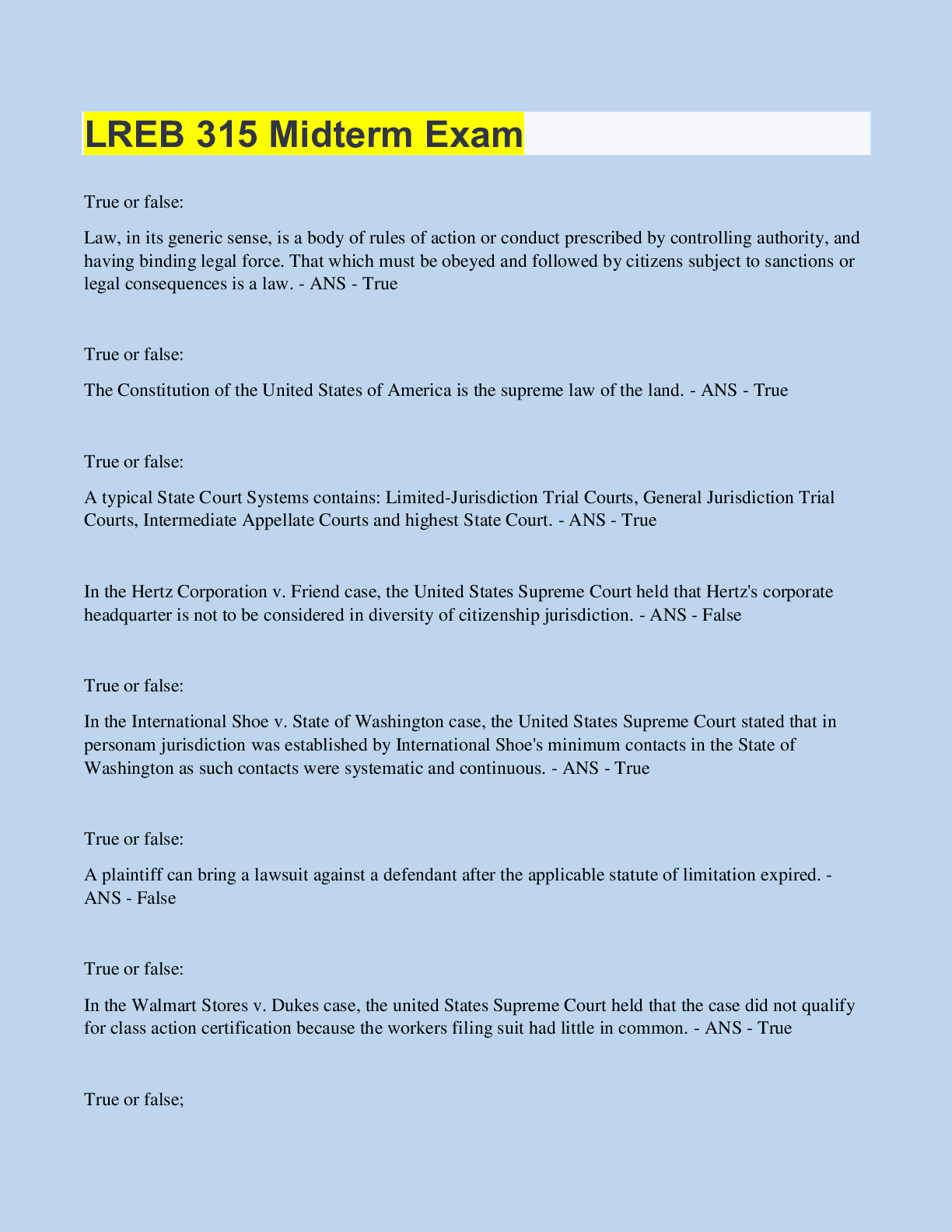
.png)
